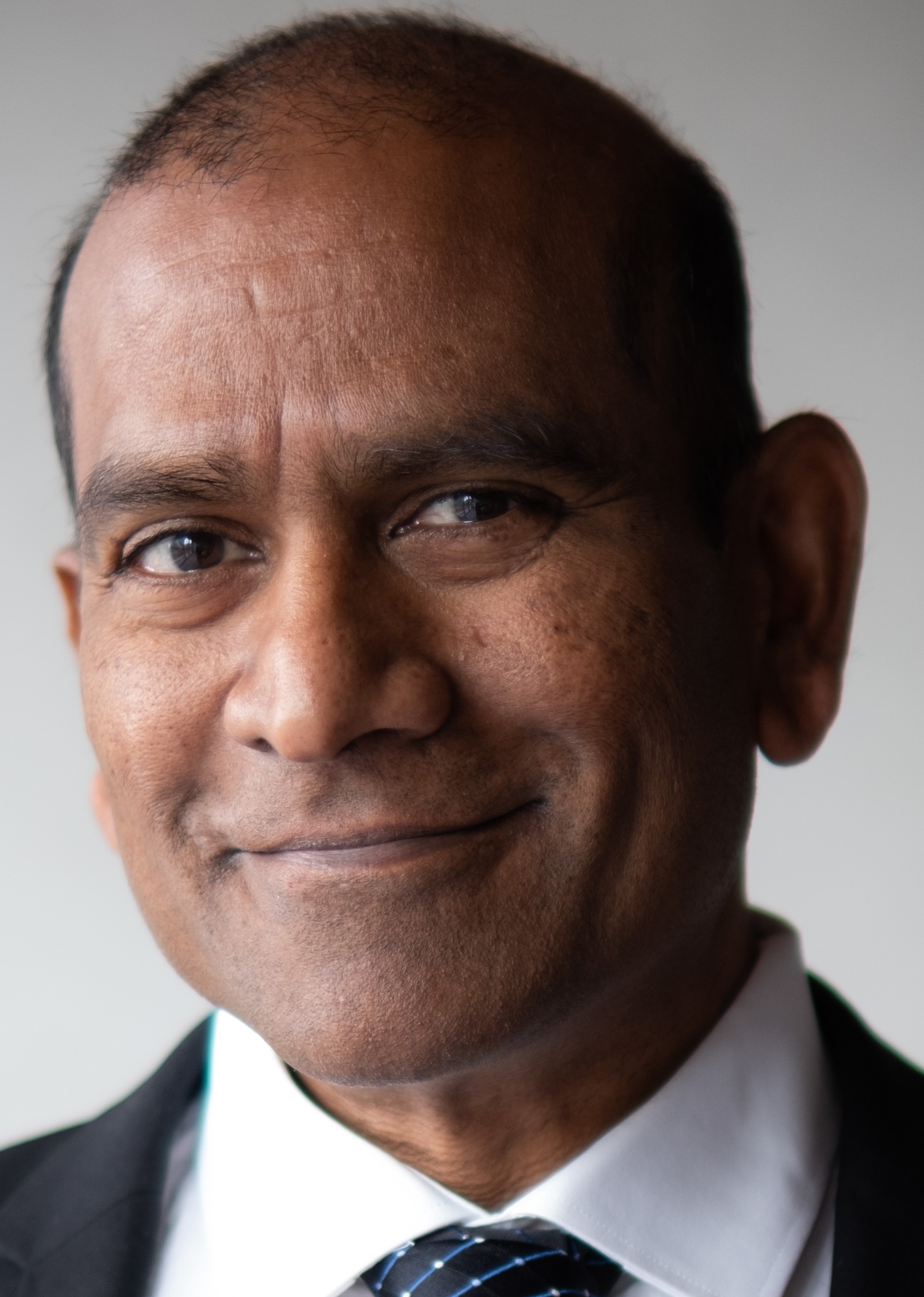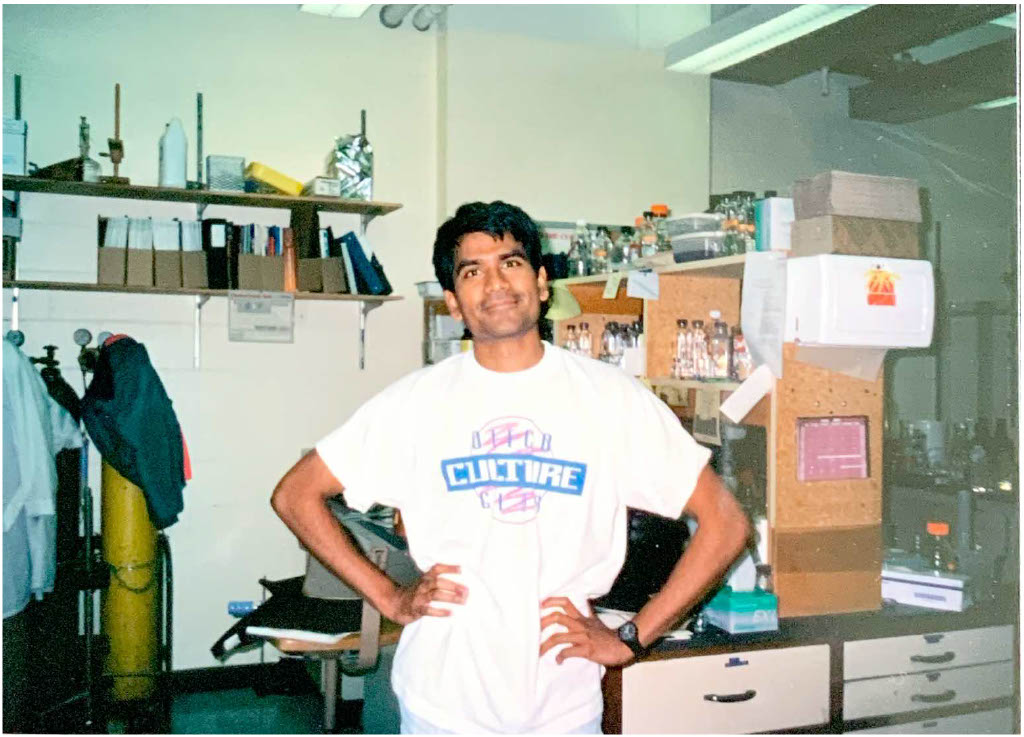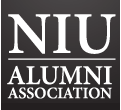Innovating a Cancer-Free Future: "Palani" Palaniappan, M.S. '92, Ph.D. '93
By Lia Kizilbash Gillet

Aridica Founder and CEO Chockalingam “Palani” Palaniappan,
M.S. ’92, Ph.D. ’93 (Photo: Palani Palaniappan)
Life sciences innovator Chockalingam “Palani” Palaniappan, M.S. ’92, Ph.D. ’93, is driven by a powerful vision: a future where cancer no longer poses a threat to humanity.
Through Aridica, the company he founded, Palaniappan is developing a breakthrough technology that will support efforts to make this vision a reality.
CAR T-cell Therapy
“There is a revolution happening in the field of cancer medicine,” Palaniappan said. “Beginning at the start of this century, a concept referred to as 'living drugs' has saved some 40,000 people from incurable cancers who have now been living cancer-free for well over a decade.”
CAR T-cell therapy, a type of living drug, differs significantly from traditional cancer treatments.
“A patient’s very own T cells are collected, isolated, genetically engineered and reintroduced into their body to attack cancer cells,” Palaniappan explained. “With a mere single-dose treatment, this personalized therapy has brought patients back to life from their deathbeds. This technology is nothing short of a medical marvel and is bound to eradicate cancer in the future.”
Despite its promise, Palaniappan said CAR T-cell therapy faces many hurdles in reaching the masses, as the sophistication required for personalized medicine is not affordable, accessible or scalable. It has also only been approved for specific types of cancer.
In 2023, after spending 25 years in leadership roles focused on innovation and research and development at GE Healthcare, Life Technologies, Terumo BCT, Epic Sciences, Ortho Clinical Diagnostics and QuidelOrtho, Palaniappan founded Aridica. Today, as the company’s CEO, Palaniappan is introducing a simple-to-use technology that delivers high-quality immune cell isolation — a critical first step in ensuring the success of CAR T-cell therapy, as well as applications in diagnostics and research.
“Aridica’s novel technology is novice-friendly, inexpensive and can be used nearly anywhere in the world,” Palaniappan said. “It will play a crucial role in shaping the field of immunology in curing cancer and autoimmune disease by radically improving the isolation of immune cells, thereby enabling basic scientific research, diagnostics and therapy. Aridica’s technology has the potential to contribute to the democratization of personalized medicine.”
Palaniappan describes the current blood separation technology used to isolate bulk immune cells as an outdated process.
“The current technology is incredibly subjective, labor-intensive, highly variable, and requires centralized logistics,” Palaniappan said. “It is not scalable for mass deployment as it relies heavily on high-skilled scientists and technicians. Aridica's technology, however, massively simplifies the process with a simple microfluidics push-button technology, making it reproducible, fully scalable for varying blood volumes from pediatric to geriatric settings and deployable in decentralized settings. Aridica's technology, protected by internally developed intellectual property, also reduces massive quantities of both plastics and medical-grade waste, helping save the planet and making it a disruptive innovation.”
A Career of Medical Breakthroughs
In 2020, while serving as the chief innovation officer of Ortho Clinical Diagnostics, Palaniappan fought another invader of human health — COVID-19. He stewarded the COVID-19 program, fostering a team effort across the entire company to produce one of the first COVID-19 tests just weeks after the pandemic began.

During Palaniappan’s tenure at GE Healthcare (a legacy of Amersham Biosciences based in Piscataway, New Jersey), he made significant contributions in both scientific and leadership roles.
“Many medical breakthroughs are enabled now through the company’s significant role in mapping the entire human genome for the first time ever in the early 2000s,” he said. “I led teams on the development and manufacturing of DNA polymerase enzymes to enable easy deciphering of the human genome. Being a part of helping to orchestrate this was a pivotal point in my career.”
The Foundation of Education
Palaniappan grew up in a middle-class family; he was raised by a father who worked as a teacher and a mother who was a homemaker. Until he was nearly ten years old, his family lived in a rural Indian village that lacked running water and electricity. With no access to battery-operated transistor radios or TVs, the environment was quiet and resourceful. Education emerged as a deeply cherished family value, viewed as a vital pathway to achieving greater life ambitions.
“In elementary school, I studied under a hurricane lamp at night and often under open space in the daytime,” Palaniappan said. “My parents ensured that my siblings and I got the best education. For high school, we were sent to boarding schools in bigger towns to gain broader exposure to life and gain an independent assessment of the world. My parents often sacrificed their own personal interests and had a singular interest in their children’s welfare.”
Palaniappan said the boarding schools focused on shaping students to become commissioned officers in the Indian armed forces. Although he never served in the military, the lessons shaped his value system and leadership qualities. He remembers being appointed team captain at the tender age of 14 for a 50-member crew and overseeing the development of younger children aged 10 to 12.
“I had the responsibility as the team leader for these children each day from dawn to dusk to mold their conduct to become future officers in the armed forces,” he said.
Immersed in NIU Research and Innovation
In his early twenties, Palaniappan moved to the United States to pursue a master’s degree and Ph.D. in molecular microbiology at NIU. He described the experience as transformative.
“I was surrounded by high-caliber professors, scientists and students who provided the right ecosystem to learn, thrive and prepare for a bright future,” Palaniappan said. “My NIU education was the foundation of my success.”
“It was also the late 1980s,” he continued. “India at that time was far behind in technological innovations ranging from telecommunications, electronic industry, transportation, modern high-rise buildings, healthcare, life science research and space exploration advancements,” he said. “It was a fascinating experience, aspiring for a better life, coming to the United States of America, which respects meritocracy, talent, diversity and the role of legal immigrants in shaping this wonderful, adopted land. I subsequently became a U.S. citizen, but I am proud to see that India has become a force to be reckoned with. In 2025, with firm determination for excellence, it is now the 4th largest economy.”
 “Palani” Palaniappan poses in Professor R. Meganathan's lab while at NIU. (Photo: Palani Palaniappan)
“Palani” Palaniappan poses in Professor R. Meganathan's lab while at NIU. (Photo: Palani Palaniappan)Palaniappan said the diversity of the curriculum in the Department of Biological Sciences appealed to him.
“NIU offered an interdisciplinary curriculum that touched on nearly all aspects of biology, from macro to micro to molecular studies from humans, animals and all living forms, all in one place with the diversity of research programs by leading professors in their respective fields,” he said.
Under the mentorship of Professor R. Meganathan, Ph.D., Palaniappan earned his Ph.D. and was involved in Meganathan’s research program, which focused on the interaction of the human gut flora E. coli to synthesize Vitamin K2, an essential component of the human blood clotting mechanism. The research yielded critical and original scientific findings, resulting in several publications. In addition to being a research scientist, he enjoyed working with undergraduate students as a teaching assistant.
“I began to operate as an independent scientist under Dr. Meganathan’s guidance and the extensive collection of talented professors,” Palaniappan said. “Dr. Meganathan had a very significant impact on my professional career. My Ph.D. thesis committee members, Drs. Vary, Starzyk, Hudspeth, and Hanzely were also instrumental in creating a high-quality learning atmosphere.”
While at NIU, Palaniappan faced the profound loss of his father to brain cancer. The year-long journey from diagnosis to his passing was challenging, as living far away and dealing with limited funds made it difficult to be by his father's side or attend his funeral. Despite these obstacles and the weight of his grief, Palaniappan found strength and support within the Huskie community. As he honed his skills in scientific reading, writing, public speaking and grant writing — essential components for his future professional success — he also formed valuable friendships with professors, staff and fellow students.
“We worked very hard but also played very hard,” he said. “We went to sports bars, enjoyed a beer and ate Chicago-style chili dogs. We threw darts, played pool and had lengthy conversations on a range of topics. It was having fun that shaped us as humans and, importantly, good humans!”
Reflection and Guiding Principles
Palaniappan’s fondest memory from NIU was forming lifelong, bonded relationships that expanded his circle of family and friends.
As a father, scientist, entrepreneur, and Huskie, Palaniappan is motivated by the desire to help others and is guided by the principles of hard work, authenticity and belief in himself and those around him. He strives to be better every day.
“I never want to let myself down or, most importantly, let down the people who believe in me. I always try to do the right thing and be a role model,” Palaniappan said. “It’s a gratifying feeling to touch millions of patients’ lives every day through the technologies I’ve helped steer. That caring and nurturing spirit that guides me is the true definition of a Huskie.”
Help inspire discovery and innovation at NIU. Visit niuforward.com.
